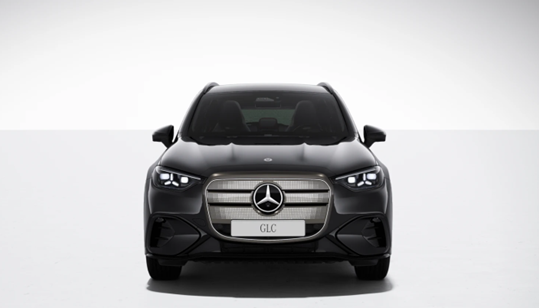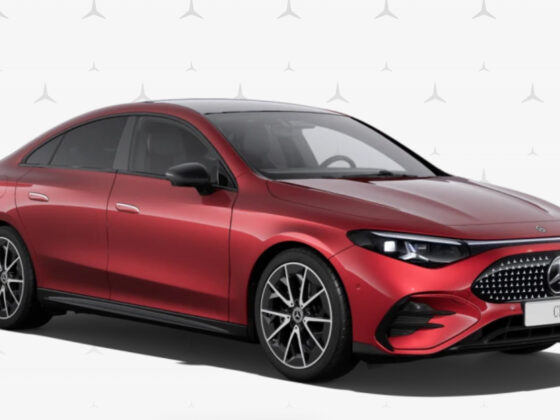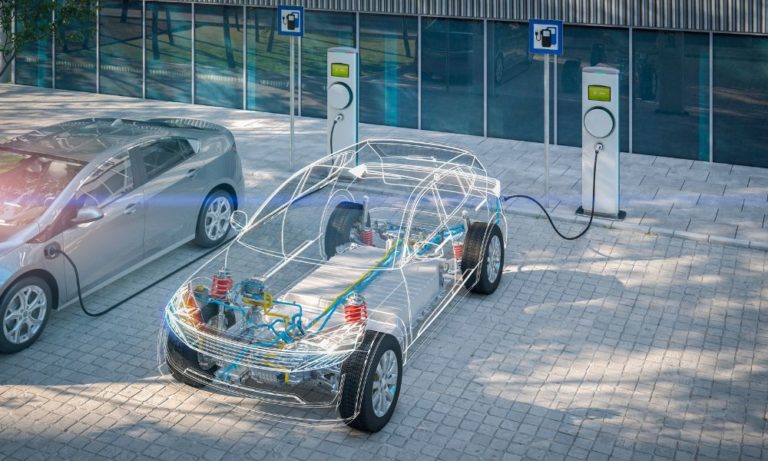
What You Need to Know About Charging Electric Vehicles
What You Need to Know About Charging Electric Vehicles https://wvl.co.uk/wp-content/uploads/What-You-Need-to-Know-About-Charging-Electric-Vehicles.jpg 1000 600 Anthony https://secure.gravatar.com/avatar/0ce9a76712b2ebb44190c51857fae37600a61d6fe57138c94dce31a727aa27ec?s=96&d=mm&r=gOne of the most common questions we get asked on a regular basis is some variant of: “What do I need to know about EV charging?”
So, we thought it would be a good idea to put the most pertinent information all in one place!
This is everything to know about charging electric vehicles.
A complete guide to electric car charging
You need a home charge point installed
We begin our guide to charging electric vehicles with the main way you’ll actually charge your vehicle – at home!
There are many, many different manufacturers of these charge points, so you’ll want to shop around for the one that best suits your needs and budget. They tend to cost £250-£500 for a 3kW charger and £450-£800 7kW one which will charge your vehicle quicker; not a bank-breaking amount for something you’ll use for years to come.
Better still, the government offers grants for up to 75% off the price of buying and fitting your charge point if you live in rented accommodation, or own your own flat or maisonette. (House and bungalow owners will have to pay the full price themselves, however).
You can also charge your EV at work…
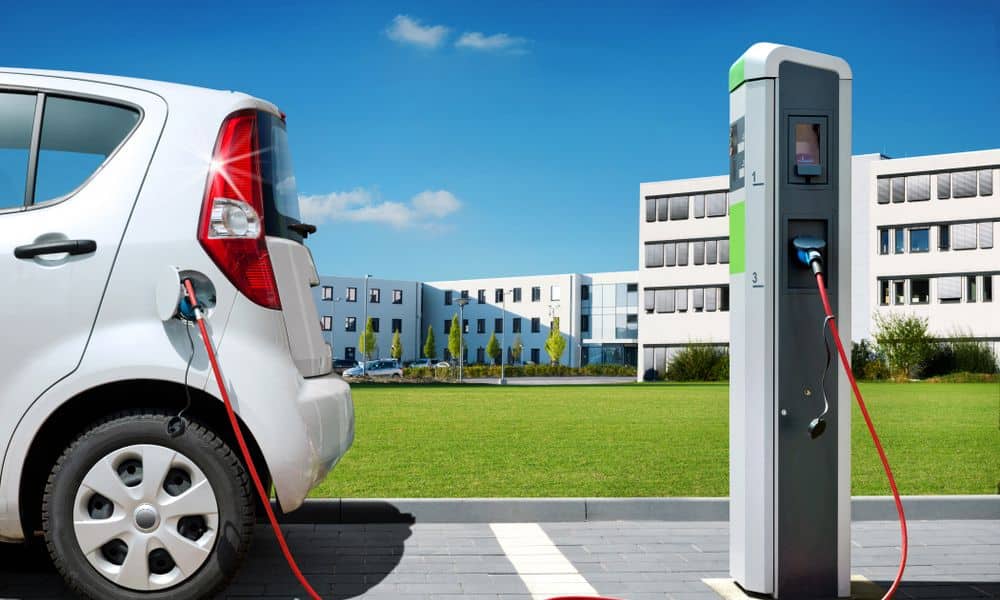
If you help run a business, you’ll be delighted to know the same 75% discount available for private charge points if available on a larger scale for workplace ones.
Through the Workplace Charging Scheme, companies can apply for a grant of £350 per charging socket on up to 40 of those sockets. If you’re looking to reduce your fleet emissions to comply with EU CO2 reduction targets, it’s a brilliant place to start!
…or out and about using public chargers
Away from home and nowhere near your workplace? No need to panic. A quick visit to Zap-Map shows just how many public charge networks there currently are in the UK, and the website’s titular map is one of the best ways to find an EV charger near you.
Essentially what you need to know here is there are three kinds of public charger:
- Rapid and super-rapid chargers will feed your EV battery the fastest
- Destination chargers are often offered for free by locations like retail parks to encourage you to visit them
- On-street chargers tend to require that you sign up for a community payment scheme or pay a one-off fee to use any chargers in that area. They’re typically slower, but can be a great option as a home-charger replacer if you’re visiting somewhere for a few days or weeks, like when you go on holiday.
Chargers come in two types of current…
EV chargers come in AC or DC variants. A DC charger has a built-in converter that typically allows them to charge significantly faster than AC ones.
… three speeds of charger…
Alongside the current option, there are essentially three ‘speed brackets’ of EV charger:
- Slow (3-6kW)
- Fast: (7-22kW)
- and Rapid (24kw+)
However, ‘rapid’ is an umbrella term that can also encompass ‘ultra-rapid’ (up to 350kW) chargers and bespoke ‘superchargers’ (up to 250kW) – as we’ll detail below.
…and with six different EV connector types
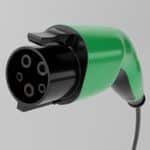 |
 |
 |
| Type 1 EV charger
Can be a 7kW AC fast AC charger or a 3-6kW slow AC charger. |
Type 2 EV charger
Can be a 7-22 kW fast AC charger or a 43kW rapid AC charger. |
Commando EV charger
Can be a 7-22 kW fast AC charger or a 3-6kW slow AC charger. |
 |
 |
 |
| CCS EV charger
50-350 kW ultra-rapid DC charger |
Type 2 EV charger
25-100kW ultra-rapid DC charger. |
Commando EV charger
120-250 kW Tesla-compatible DC supercharger. |
The faster the charger, the lower the charge time
There’s no one single guide for EV charging times since the technology is evolving all the time, and it highly depends on the vehicle model, the capacity of its battery, and how much power it has left at the time.
That being said, there are some rough estimates you can make:
- 7kW fast chargers will power a 40kWh battery from 0-80% in 4-6 hours.
- 100kW ultra-rapid DC chargers can take around around 15-30 minutes
- 50kW rapid DC chargers can take between 15-60 minutes
- 43Kw rapid AC chargers can take 30-60 minutes.
You should home-charge and rapid-charge to different amounts
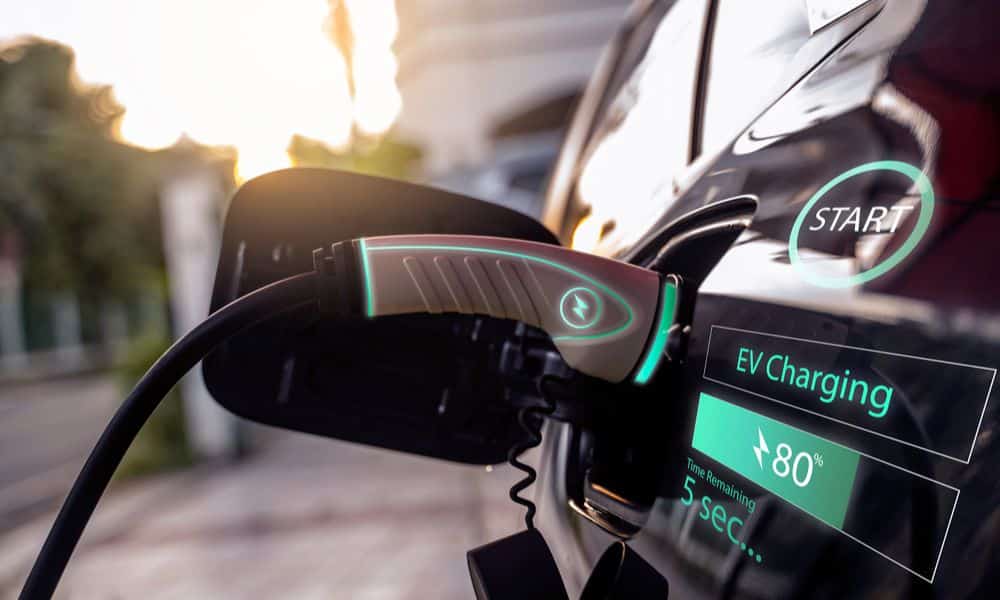
A complete guide to electric car charging wouldn’t be complete without some mention of the different amounts to charge your EV’s battery to in different circumstances.
At home you’ll want to charge your battery to 100% overnight, ready for the day ahead. However, on the road using a rapid charger, you’ll want to keep your charge to no more than 80%. That’s because rapid chargers actually slow down after 80% to encourage people not to hog them, freeing them up instead for other drivers.
You should also be mindful of letting your EV’s battery drop below 20% as this can adversely affect the capacity. Try and keep it between 20%-80% during regular use to get the longest battery life possible.
And with that, our guide to charging electric vehicles is complete!
Is an electric vehicle in your future?
Whether you’re thinking about leasing for yourself, or you’re responsible for your company’s fleet, if you’ve read this far then getting an electric vehicle is likely on the cards for you not too far down the line.
If you’d like straightforward advice about all things EV, whether that’s the latest models, recommended charge points, charge times or anything else that comes to mind, then please get in touch – our expert team will be happy to help!



